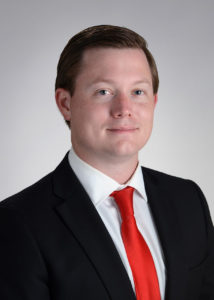Psychedelics in the Psychiatrist’s Office

Story by Dave Turkowitch
Twelve million people in the US suffer from post-traumatic stress disorder (PTSD) during any given year. The disorder may occur in anyone who has experienced or witnessed some form of a traumatizing situation including violence, natural disaster, or a serious accident. The symptoms vary widely in severity and may include flashbacks, avoidant behavior, alterations in mood or cognition, and/or dysregulation of the nervous system. Treatments currently available, including talk therapy and antidepressant drugs offer hope for improvement yet with marginal results. Such a large, heartbreaking issue requires more than a mere glimmer of hope. What we have available right now may just not be enough; perhaps it is time to learn and adopt from the past.
Pre-dating written history, psychoactive substances have been used in sociocultural and ritual contexts for healing and religious purposes. This has been retroactively coined the first wave of psychedelic use. The second came in around the 1960’s with specially trained therapists or psychiatrists replacing the shamans. The burgeoning, and overall positive research and anecdotal evidence during this time suggested a promising future for these substances to treat depression, anxiety, PTSD, and other neuroses. However, because of unsanctioned use outside of doctor’s offices, they were made illegal. That’s where the legal status has sat for decades. Stagnation. No research. No treating patients with this medicine. But things are shifting, both culturally and legally; the ripples of the past, and the dire need for treatment in the present have developed into a budding (third) wave of psychedelics.

Tyler R. Kjorvestad, M.D., Clinical Assistant Professor, Psychiatry and Behavioral Sciences
What is a psychedelic? Who might benefit? How does it work in conjunction with therapy? The word psychedelic comes from the Greek word “mind-manifesting” and broadly includes psychoactive substances that temporarily alter perception and induce non-ordinary states of consciousness, such as psilocybin, LSD, ketamine, and MDMA. The spotlight currently shines brightly on MDMA, which is nearing the end of Phase 3 clinical trials for PTSD treatment. In fact, the FDA announced in July that they anticipate “approval for MDMA-assisted psychotherapy within approximately 24 months.”
MDMA seems to work by temporarily altering one’s neurotransmitter/hormone makeup (think serotonin, dopamine, norepinephrine, etc.) subsequently increasing trust and bonding, and decreasing fear and anxiety. The neurochemical stars are thus aligned. With the assistance of a trained expert, someone under the influence of MDMA that is suffering from PTSD may find themself readily able to revisit traumatic experiences with ease, openness, and empathy.
What does revisiting memories offer a person suffering from PTSD? Dr. Tyler Kjervestad, a psychiatrist at The University of Kansas Health System and founder of the Journal of Psychedelic Psychiatry, was able to expand on this subject: “The story we tell ourselves matters; it dictates how we engage with reality. If someone has experienced interpersonal trauma, that may ripple out and affect all of their interpersonal experiences going forward. Guided reflection on past trauma leads one to look at the defining moments of their life and enables them to see how they have shaped their life. It also may allow one to break that circuit of one’s normal thinking and allows one to realize they have more control and influence over their behaviors…It primes one to identify triggers that set off depression, anxiety, or trauma and allows one to recognize the effects they have and helps to adapt behaviors to live more fully in the world.”
There is a fitting analogy here to be shared: similar to searching for a treatment for PTSD and other disorders through humanity’s past use of psychedelic substances, healing may be offered to the individual who looks in their own past to reclaim their humanity that trauma has stripped away. Alone, this work may be too much of a burden to carry, but with the right professional to guide the journey, and the right neurochemistry, the ripples of the past trauma may transform into waves of healing.






